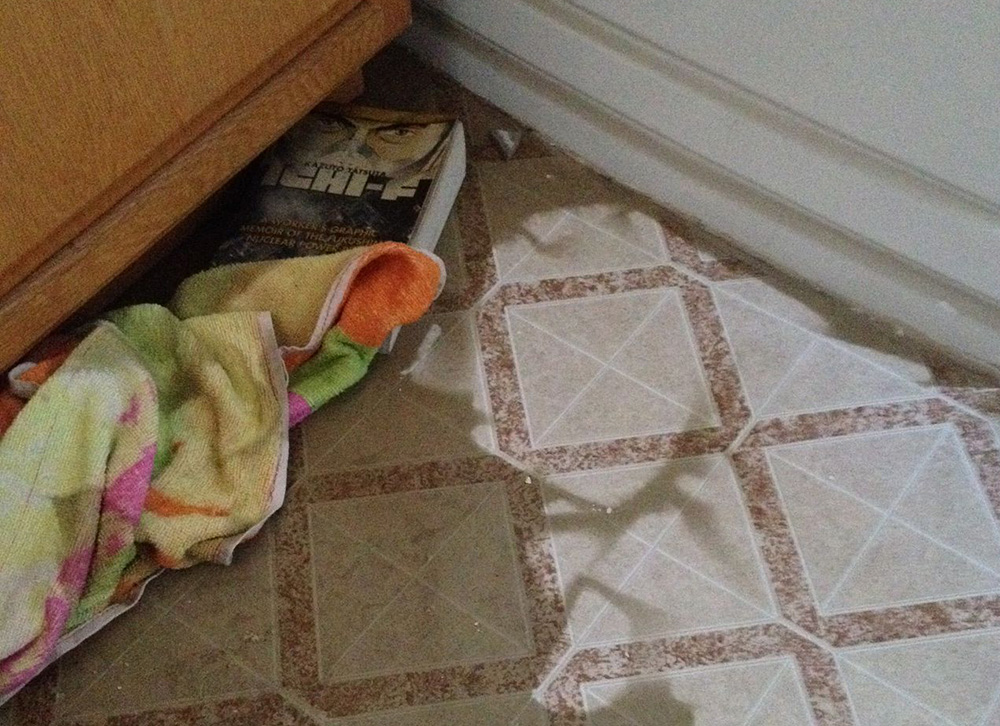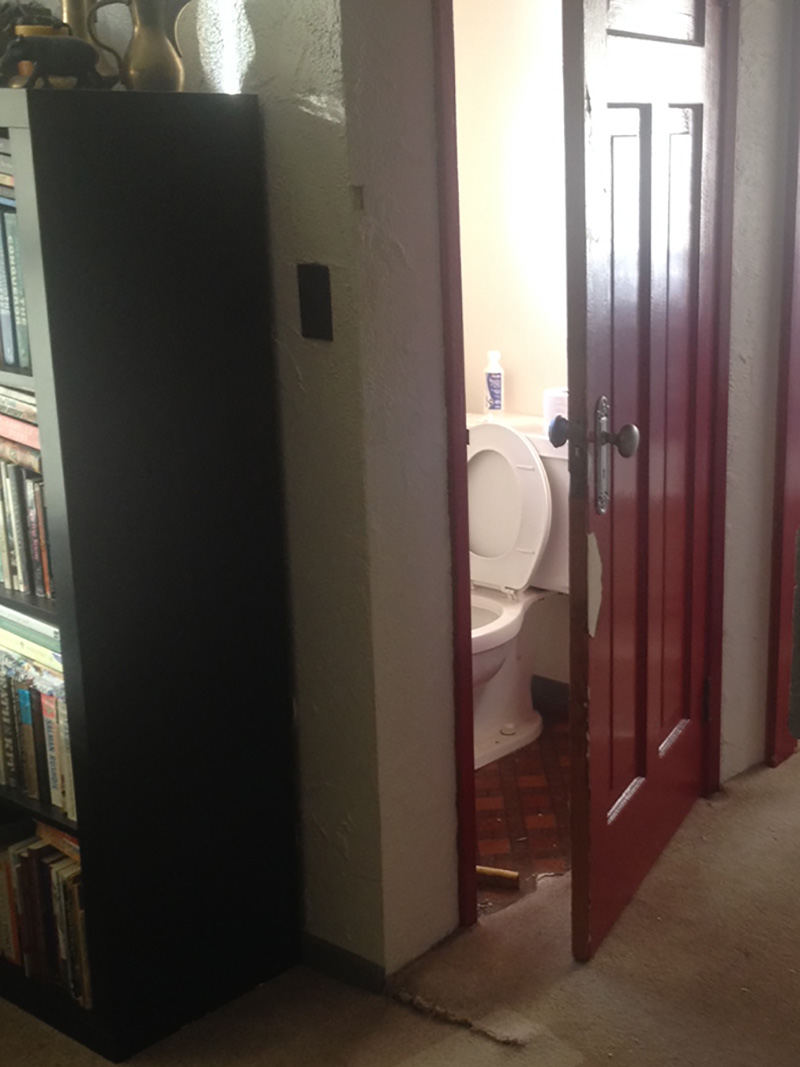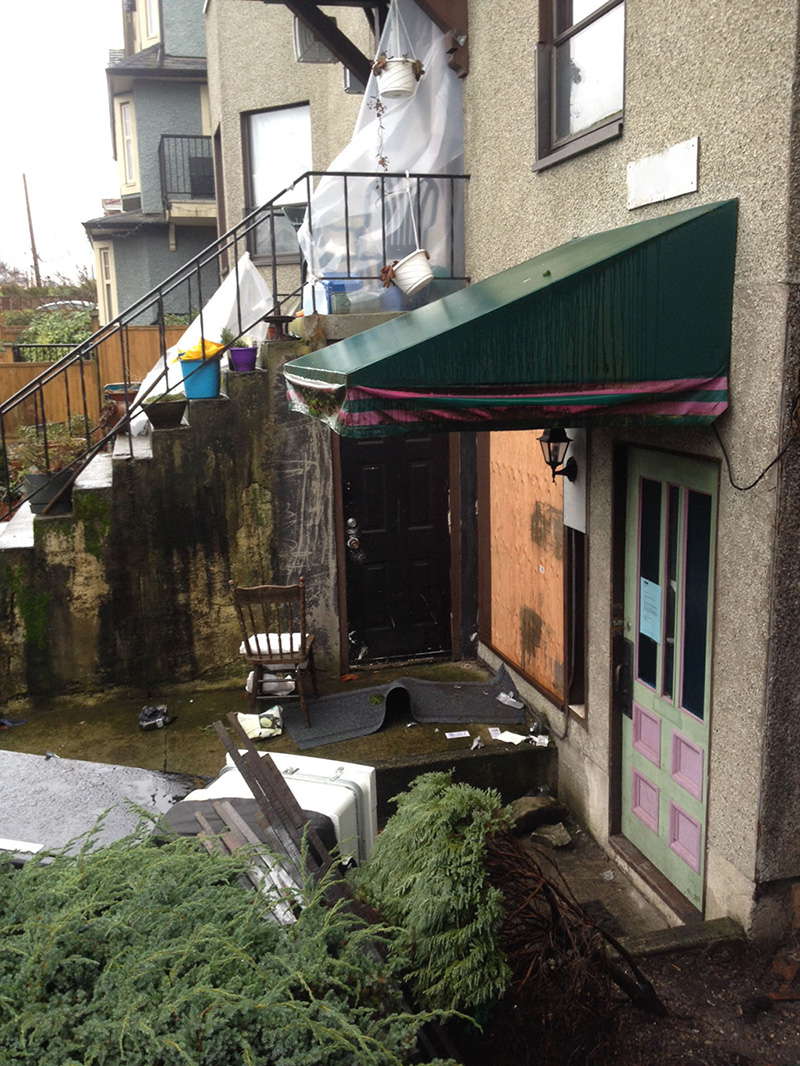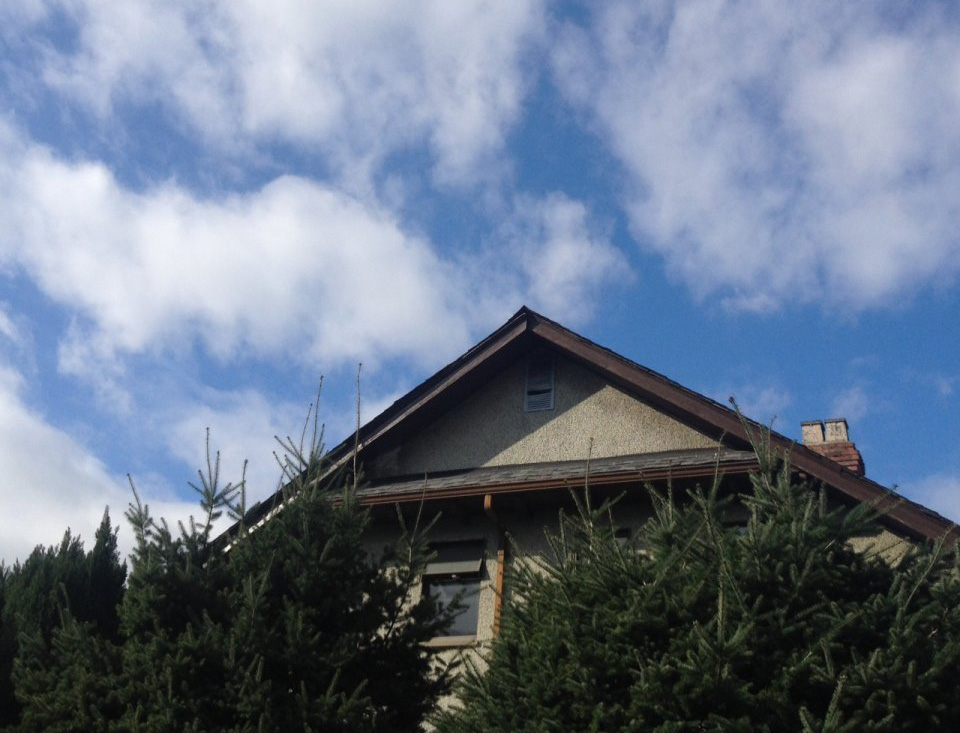I received a text from my landlord telling me and my fellow tenants, with the tepid grace of 48-hours notice, that we would be granted three whole hours to move all our belongings out of our smoke-laden, now uninhabitable apartments that coming Saturday.
It was a remarkably curt transmission that wasn't short of being completely unreasonable, but at the same time it was something, something other than another update telling us not to enter the building after nearly a week of waiting.
Six days prior, there was a fire in my apartment building — an eight-suite converted mid-century house in the Hastings-Sunrise neighbourhood of Vancouver. It was late November, just when the holidays were starting to gather momentum. The fire started from a botched repair job in the basement, and the repairman had run to knock on the apartment doors as flames spread to the second floor. The fire department kicked down my door, but thankfully, my apartment was empty. No one in the building was hurt.
I returned home shortly thereafter to find the block partitioned and a fire truck out front. The hoses were already reeled back in, the fire was out. The firefighters let us in to grab a handful of belongings, and I scrambled up to stuff a backpack with what I could: my laptop (a selection I initially criticized as indulgent but in actuality was crucial), a few pairs of underwear, a photograph of nine-year-old me from the fridge and a pair of jeans I never wear. And one singed toothbrush.
I walked in shock to a friend's house. I had planned to go to a movie and I thought I still might. Instead, I curled up on the couch and eventually fell asleep.
Late that night I received a text saying we weren't allowed to go back inside the building until the fire department did another inspection. So I went to a friend's in Victoria to get my mind off everything while the dust settled, thinking I would return in a couple days to take stock, see what I had left and begin to move on. Little did I know that was just the beginning.
Lack of information kept tenants out
The fire department recorded the fire as an accident. But recalling the repairs I'd witnessed in my own suite in the five years I'd lived there, I had little confidence in the maintenance standard that led to that conclusion.
And as the days and then weeks passed, it became clear to me that my landlord didn't have complete confidence in that assessment either. From my position as a displaced inhabitant, I saw a very narrow path emerge: my landlord, teetering on the edge of losing her insurance coverage, was carefully guided to protect her own liability at all costs.
So while the proposal to move all of our things in a three-hour window at our own expense was absurd, what followed was worse.
After all of us had rearranged work hours, booked storage units and co-ordinated moving help, my landlord revoked the moving plan the following day and told us we were once again not allowed to enter the building.

B.C.'s Residential Tenancy Act states that if an unforeseeable event such as an earthquake or flood compromises the circumstances that allow a contract (a.k.a. a lease) to be met, and neither the tenant nor landlord is at fault, then the tenancy is frustrated. The contract ends abruptly and the obligations of both tenant and landlord are relieved. However, if the tenant or the landlord is at fault, especially as a result of negligence, then a frustrated tenancy cannot be argued.
While our landlord offered to return our damage deposits as well as the rent for the remaining days of the month following the fire, no compensation for even potential accountability or inconvenience was extended.
The insurance company put a fob padlock on the door to monitor the building, and we continued to be told we couldn't enter. My landlord ensured me the building had 24-hour security, but with my apartment door knocked down and my inability to lock my own unit in the now uninhabited building, I expressed repeated concern for my belongings. When she told us the locks had been changed (which I later discovered was a false proclamation), I realized the security and fob weren't there to protect our belongings — they were there to protect the building from us.
My guitar lay reclined on its stand by the door; my passport, external hard drive and too much cash were casually hidden in a drawer. I feared for my premier furnishings: the stereo and turntable my father bought in the late '70s and my greatest asset, my record collection. All accessible via a wide open door to my life.
I made continual requests to my landlord for official documentation prohibiting our access to the building. I studied the Residential Tenancy Act and spoke with the Residential Tenancy Branch, but they could do little except articulate my rights in accordance with the act. I spoke with the Tenant Resource and Advisory Centre, which also vouched for my rights but couldn't provide case-specific guidance. I called the non-emergency police line and they forwarded me back to the RTB. I emailed and left messages with the insurance company, who not surprisingly, provided no information except that my landlord would be sending out "a global communication" shortly. I spoke with the City of Vancouver, attempting to establish if any other government body could potentially be prohibiting access to the house. I found nothing.
To the best of my knowledge, the fire department never did a second inspection. Following multiple conversations with the fire hall that responded to the fire and various levels of Vancouver Fire and Prevention Services, I concluded that the building, noted as uninhabitable, had been turned back to private hands the night of the fire.
There was nothing outside my landlord's private interests standing between us and our belongings: we were unlawfully being denied our right to access our units and belongings as tenants.
Ultimatum from the landlord
Almost two weeks after I was displaced, exhausted from ferrying myself between friends' houses and spending all my free time trying to figure out what was happening, my landlord requested a tenants' meeting.
And so the story unfolded. In exchange for admission to remove our belongings, we were given waivers absolving my landlord of liability. The waivers were written in pseudo-legal jargon and lathered in propaganda that took advantage of the invariable reality that the mid-20th century house contained asbestos. We were told that if we signed them, she would co-ordinate with the insurance company to arrange two days (that we all had to unanimously agree on) to move our belongings. Any additional days would be $400/day at our own expense for supervision of the site. These were the terms for access granted.

I later established that the restoration company had been entering our suites, breaking walls and floors and tearing carpets to test for asbestos. While the landlord was allowed to enter the suite without warning in an emergency, various parties coming and going from my apartment and manipulating the interior without my knowledge, while my belongings remained, was befuddling. My records slowly weathered from the accumulating humidity in the powered-down building.
That weekend I emailed my landlord a letter communicating my insistence to enter the building to collect my belongings without conflict and my legal right to do so, and notified her that I would be seeking legal intervention if she did not take heed.
She did not respond.
As tenants of the building we had all shown initial solidarity not to sign the waiver, but as the desire to move on took precedent, some tenants agreed and the landlord began to arrange moving days in co-ordination with the insurance company. I told her I would be there on the arranged dates but did not agree to sign the waiver.
I had already begun to source out legal assistance with a pro-bono lawyer but feared the intake and review process wouldn't be complete in the time-sensitive window I needed to get my things out, even if my case was approved. But through persistence I somehow managed to get a meeting the day before the scheduled moving date and left clutching a letter written and signed by a lawyer that defended my rights to access my belongings.
The morning of the scheduled move I received texts from my fellow tenants saying the landlord wasn't budging. I showed up shortly thereafter, lawyer's letter in hand, and my landlord acquiesced to me and the remaining tenants moving our things without signing the waiver. The restoration company remained on site, but with my landlord gone, they were reasonable and sympathetic to our circumstances. They walked in and out of the building in casual clothes, not masks and tyveks, dispelling the asbestos rhetoric from the position of those who were trained to handle it.

In two days, with the assistance of a handful of friends, I moved my salvageable belongings into a storage unit. I felt an overriding sense of relief as I entered the cement building that granted me a dark, dry box. However precarious my rights in relation to renting it were, I felt refuge.
A relationship of power
The night before the fire I was relishing in how much I loved that apartment. How while affordable, it was also spacious, above ground, with character. How those three things in combination with affordability were things I was sure I would never be able to find in Vancouver again. How I could never leave that apartment or I would probably lose Vancouver.
I'm now subletting a bedroom-sized bachelor with mini-kitchenette and shared bathroom that's almost half the size of my old apartment for only an increment more. For the time being, I haven't lost Vancouver. But it's now even more glaringly apparent that I don't have any of this. It's as precarious as ever.
In the end, my landlord not only did nothing to compensate us for a fire that occurred on her watch, but instead, completely exacerbated the terms of our displacement and our ability to move on. She denied us access to the belongings that afforded us our physical well-being, creating psychological havoc by withholding concrete information about the building and our tenancy, and followed the corrupt advice of an insurance company completely oblivious to or unconcerned about our rights as tenants.
As it stands, tenancy owes us nothing. It merely reflects a relationship of power that, at best, is mediated to avoid conflict.
In theory, the Residential Tenancy Branch should have advocated on my behalf, but I was told they stopped providing interventions in the early 2000s. While filing a dispute resolution claim after the fact is an option, it takes months to review. So who intervenes to ensure accountability in the immediate aftermath of a fire that leaves tenants displaced?
As far as I could deduce, outside of private legal assistance, there was no government body to intervene as an authority higher than the voice of the tenant. And yet, it wasn't until I had a letter from a lawyer that my landlord afforded me any control.
But it shouldn't have to come to that: a resource I was barely able to secure in a situation where public services had failed me. As renters and as the struggling backbone of this city, we deserve more. ![]()
Read more: Rights + Justice, Housing
















Tyee Commenting Guidelines
Comments that violate guidelines risk being deleted, and violations may result in a temporary or permanent user ban. Maintain the spirit of good conversation to stay in the discussion.
*Please note The Tyee is not a forum for spreading misinformation about COVID-19, denying its existence or minimizing its risk to public health.
Do:
Do not: